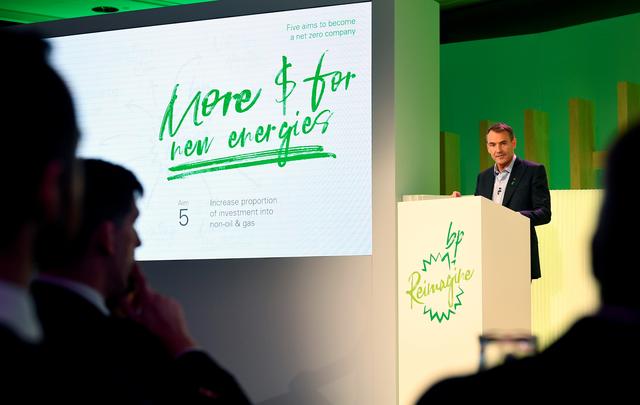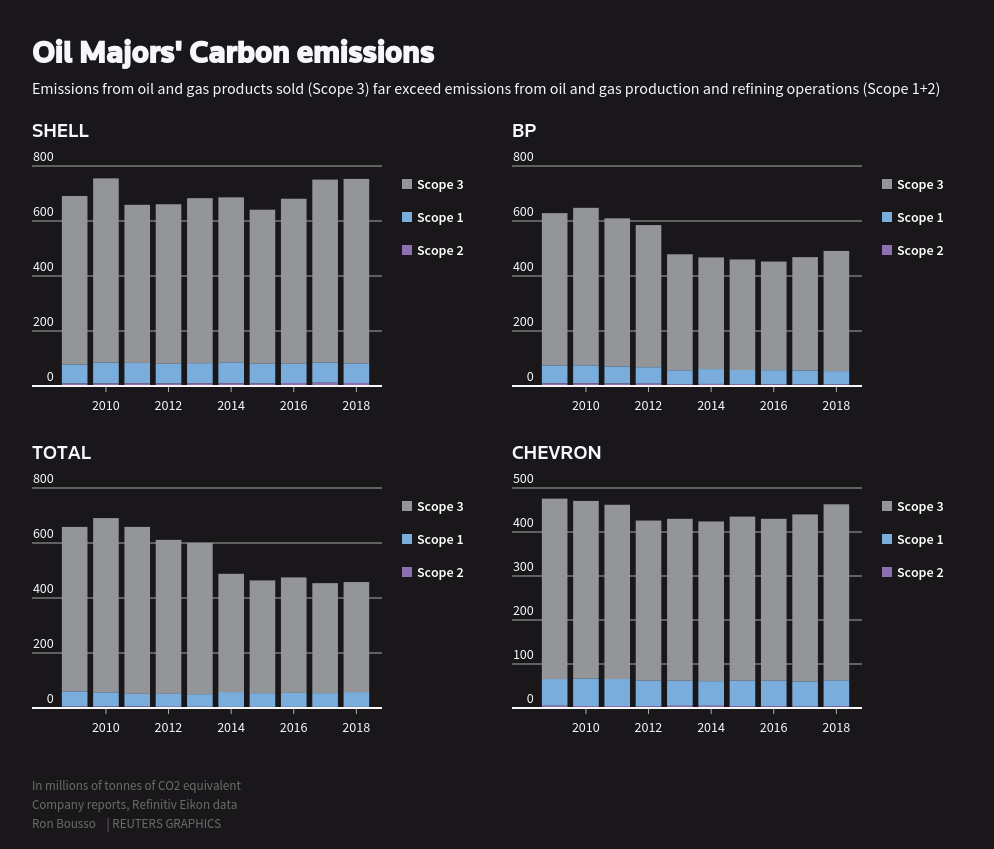LONDON – BP (BP.L) will leave the main U.S. refining lobby and two other trade groups as new Chief Executive Bernard Looney spurs some of the oil sector’s most ambitious targets for curbing carbon emissions.

Source: Reuters
BP said its view on carbon pricing and that of the American Fuel & Petrochemical Manufacturers (AFPM) were “at odds and currently we have no areas of full alignment.”
“BP will pursue opportunities to work with organisations who share our ambitious and progressive approach to the energy transition,” Looney said in a statement.
It will also not renew its membership in the Western States Petroleum Association (WSPA) and Western Energy Alliance (WEA).
“AFPM is and has been committed to supporting policies that address climate change,” said AFPM Chief Executive Chet Thompson. “Because of that, it leads us to assume that this decision was made based on factors other than our actual positions on the issues.”
BP, one of the largest U.S. refiners and petrochemical producers and fuel retailers, will remain a member of the American Petroleum Institute, the country’s largest energy association.
That decision prompted criticism from Greenpeace U.K. climate campaigner Mel Evans, who said API was the lobby group that helped overturn U.S. methane restrictions.
BP has called for placing a price on carbon emissions in order to push out the most polluting fossil fuel production including coal and encourage investment in renewable energy.
Royal Dutch Shell (RDSa.L) and Total (TOTF.PA) last year both said they would not renew their memberships in the AFPM.
Oil and gas companies are under pressure from investors and climate activists to meet the 2015 Paris climate goal of limiting global warming to below 2 degrees Celsius from pre-industrial levels.
“The industry’s response to climate change is the key question that will define their performance and viability,” Ben Ratner, senior director at Environmental Defense Fund (EDF) told Reuters.
In response to the Paris accord, BP, Shell and others have been investing in cleaner fuel technologies.
But the AFPM has opposed standards requiring refiners to blend or subsidise the blending of biofuels into the gasoline pool, saying it hurts independent refiners.
The AFPM has around 300 U.S. and international members including Exxon Mobil Corp and Chevron Corp which operate 110 refineries and 229 petrochemical plants, its 2018 annual report showed.
Exxon and Chevron did not immediately respond to requests for comment.
BP operates three U.S. refineries including the 430,000 barrels per day Whiting, Indiana plant, its largest.
Slideshow (2 Images)
(Graphic: Oil Majors’ Carbon emissions – here)


